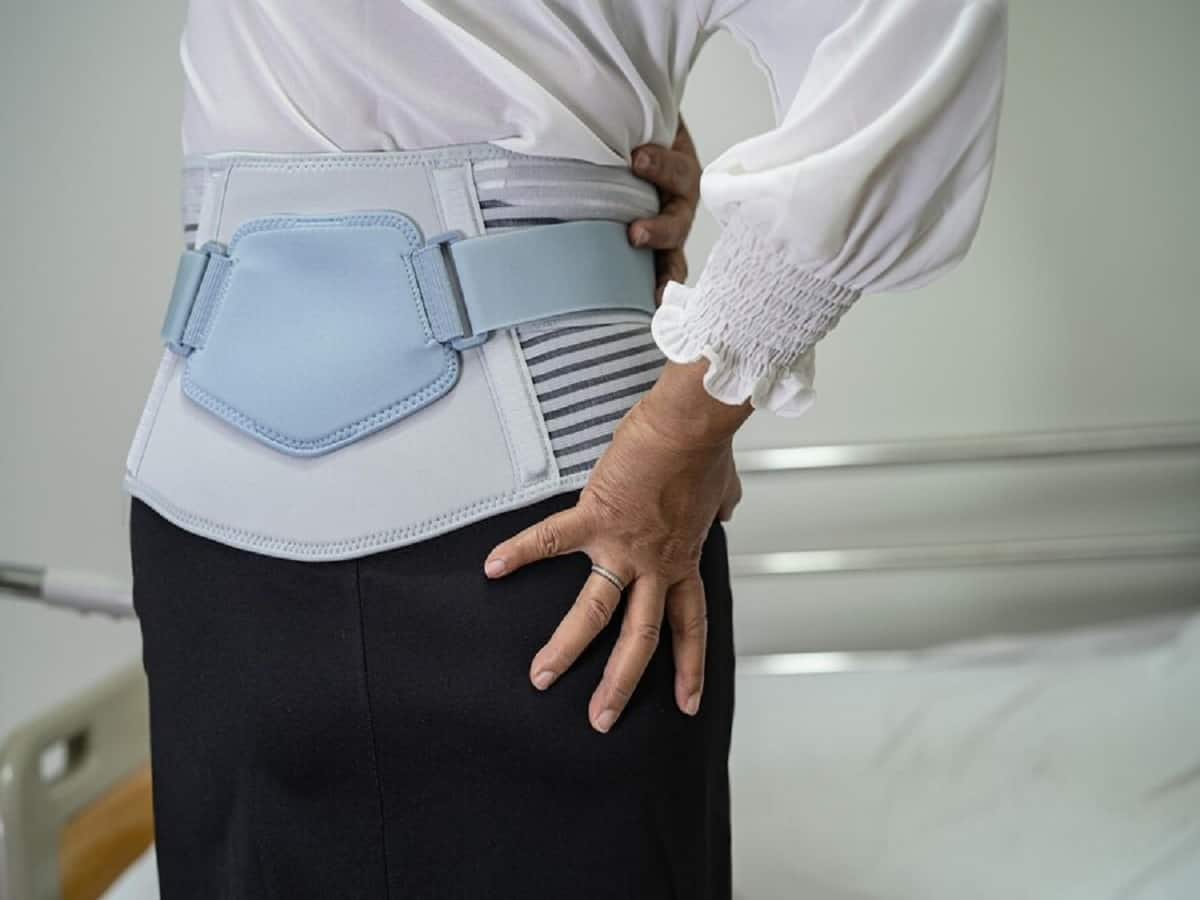3 major reasons for body weakness and shakiness – Body weakness and shakiness can be frustrating and uncomfortable, especially if you don’t know the cause. In most cases, these symptoms are not serious and can be managed easily. However, sometimes they can indicate a more severe underlying medical condition. In this article, we will explore the common reasons for body weakness and shakiness and how to manage them.
Definition of body weakness and shakiness
Body weakness refers to a loss of strength in the muscles, resulting in difficulty performing physical activities. Shakiness, on the other hand, is an involuntary trembling or shaking of the body that can occur in any part of the body, including the hands, legs, and head. Shakiness is often accompanied by a feeling of unsteadiness or instability.
Causes – reasons for body weakness and shakiness
1. Medical conditions that cause body weakness and shakiness

Anemia
Anemia is a condition where the body lacks enough red blood cells or hemoglobin to transport oxygen to the body’s tissues. This can result in weakness, fatigue, and shakiness. Anemia can be caused by iron deficiency, vitamin B12 deficiency, or chronic disease.
Diabetes
Diabetes is a chronic condition where the body cannot produce enough insulin or use it effectively. High blood sugar levels can damage nerves and blood vessels, leading to weakness, numbness, and shakiness. Other symptoms of diabetes include frequent urination, thirst, and hunger.
Hypothyroidism
Hypothyroidism is a condition where the thyroid gland does not produce enough thyroid hormones. This can result in a slow metabolism, fatigue, weakness, and shakiness. Other symptoms of hypothyroidism include weight gain, cold intolerance, and dry skin.
Parkinson’s disease
Parkinson’s disease is a progressive neurological disorder that affects movement and coordination. It can cause tremors, stiffness, and weakness in the muscles. Other symptoms of Parkinson’s disease include balance problems, slow movements, and difficulty speaking.
Multiple sclerosis
Multiple sclerosis is a chronic autoimmune disease that affects the central nervous system. It can cause weakness, numbness, and shakiness in the muscles. Other symptoms of multiple sclerosis include vision problems, fatigue, and difficulty with coordination and balance.
Chronic fatigue syndrome
Chronic fatigue syndrome is a condition where the body experiences severe and persistent fatigue that is not alleviated by rest. It can cause weakness, shakiness, and difficulty concentrating. Other symptoms of chronic fatigue syndrome include headaches, muscle pain, and insomnia.
Low Blood Sugar
Low blood sugar, also known as hypoglycemia, occurs when the blood sugar level drops below normal. This can cause body weakness, shakiness, and dizziness. Low blood sugar can be caused by skipping meals, excessive exercise, and taking too much insulin.
Don’t miss | Why Am I Coughing So Much But Not Sick? Understanding the Possible Causes
2. Lifestyle factors that contribute to body weakness and shakiness

Stress
Stress can cause weakness and shakiness as it triggers the release of hormones that affect the body’s ability to function properly. Chronic stress can also increase the risk of developing other medical conditions that cause weakness and shakiness.
Poor nutrition
Poor nutrition can lead to vitamin and mineral deficiencies, which can cause weakness and shakiness. A diet that lacks essential nutrients like iron, magnesium, and vitamin B12 can result in anemia, muscle weakness, and tremors.
Dehydration
Dehydration occurs when you lose more fluid than you take in. It can cause weakness and shakiness as it reduces the body’s ability to transport nutrients and oxygen to the muscles. It can also lead to muscle cramps, dizziness, confusion, and fainting.
Lack of sleep
A lack of sleep can cause fatigue, weakness, and shakiness as it affects the body’s ability to restore and repair itself. Chronic sleep deprivation can also increase the risk of developing other medical conditions that cause weakness and shakiness.
Sedentary lifestyle
A sedentary lifestyle can weaken the muscles and lead to fatigue, weakness, and shakiness. Lack of physical activity can also increase the risk of developing other medical conditions that cause weakness and shakiness.
Anxiety
Anxiety can cause body weakness and shakiness as the body’s response t hormones leads to muscle tension and fatigue. Anxiety can also cause other symptoms such as sweating, rapid heartbeat, and difficulty breathing.
Don’t miss | Sicca syndrome causes, diagnosis, risk factors, treatment, and medication
3. Medications that can cause body weakness and shakiness

Antidepressants
Some antidepressants can cause weakness and shakiness as a side effect. These medications affect the levels of neurotransmitters in the brain, which can lead to muscle tremors, fatigue, and weakness.
Beta-blockers
Beta-blockers are medications used to treat high blood pressure and other cardiovascular conditions. They can cause weakness and shakiness as they lower the heart rate and blood pressure, which can reduce blood flow to the muscles.
Anti-seizure drugs
Some anti-seizure drugs can cause weakness and shakiness as a side effect. These medications affect the levels of neurotransmitters in the brain, which can lead to muscle tremors, fatigue, and weakness.
Muscle relaxants
Muscle relaxants are medications used to treat muscle spasms and pain. They can cause weakness and shakiness as a side effect, as they affect the levels of neurotransmitters in the brain that control muscle movement.
Blood pressure medications
Some blood pressure medications can cause weakness and shakiness as a side effect. These medications can lower blood pressure and reduce blood flow to the muscles, which can lead to muscle weakness and tremors.
You may like | Is Cervical Cancer Deadly? Prevention Tips To Lower Your Risk
Diagnosis and treatment of body weakness and shakiness

Physical examination
A physical examination can help identify any underlying medical conditions that may be causing body weakness and shakiness. The doctor may check for muscle weakness, tremors, and other neurological symptoms.
Blood tests
Blood tests can help identify any vitamin or mineral deficiencies, anemia, or other medical conditions that may be causing body weakness and shakiness.
Imaging tests
Imaging tests like CT scans, MRI scans, or X-rays can help identify any structural abnormalities or damage to the muscles or nerves that may be causing body weakness and shakiness.
Treatment options
The treatment options for body weakness and shakiness depend on the underlying medical condition. Treatment may include medications, physical therapy, lifestyle changes, or surgery in severe cases.
Don’t miss | 5 signs of clogged arteries
Prevention of body weakness and shakiness

Exercise regularly
Regular exercise can strengthen the muscles and improve overall health, reducing the risk of developing medical conditions that cause body weakness and shakiness.
Eat a balanced diet
Eating a balanced diet that includes essential nutrients like iron, magnesium, and vitamin B12 can help prevent vitamin and mineral deficiencies that may cause body weakness and shakiness.
Stay hydrated
Staying hydrated can improve blood flow to the muscles and prevent dehydration, which can cause weakness and shakiness.
Get enough sleep
Getting enough sleep can help the body restore and repair itself, reducing the risk of developing medical conditions that cause body weakness and shakiness.
Manage stress
Managing stress can reduce the release of stress hormones that affect the body’s ability to function properly, reducing the risk of developing medical conditions that cause body weakness and shakiness.
Conclusion
Body weakness and shakiness can be caused by a variety of medical conditions, lifestyle factors, and medications. It is important to identify the underlying cause and seek appropriate medical treatment. Prevention strategies such as regular exercise, a balanced diet, hydration, and stress management can help reduce the risk of developing medical conditions that cause body weakness and shakiness. Source
Don’t miss | 10 signs you may have a stomach parasite









